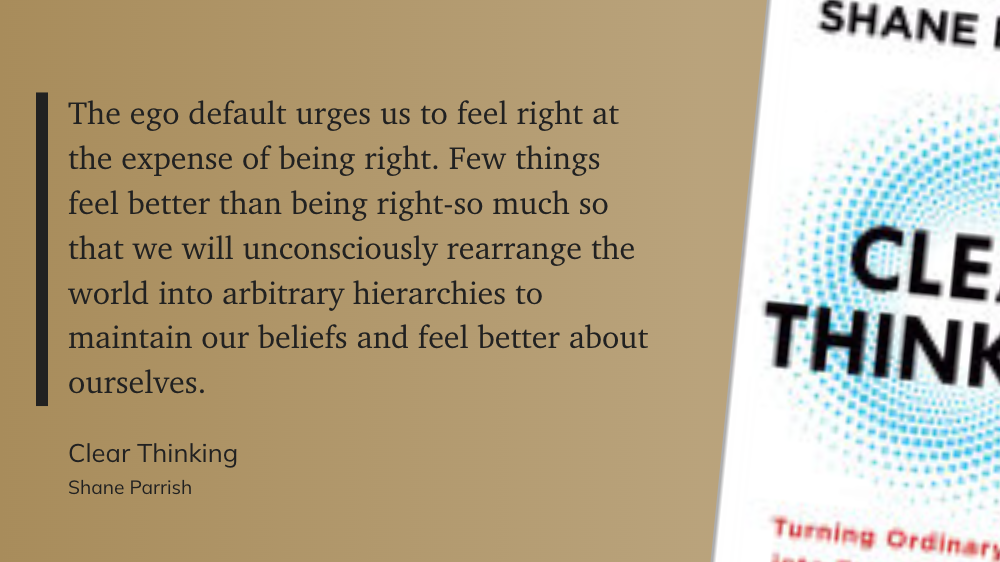Avoiding the Ego Default
We all know the pull of wanting to be right, especially in the always online world many of us inhabit. It can be intoxicating. In a heated conversation, whether in person or online, the moment we sense our position getting battered, something inside resists; not because truth is at stake, but because our ego is. Shane Parrish–author, podcaster, and clear thinker extraordinaire–calls this the “ego default,” the drive to feel right at the expense of actually being right. I’ve felt it in staff meetings, political arguments with friends, and even small family squabbles. Hell, I even argue with myself while I am reading. Self-righteousness is deeply alluring.
The irony is that this insistence on being right usually blocks one’s growth. When I look back on moments when I dug in the hardest, I wasn’t always defending the truth; I was largely defending myself (even if I was correct on the facts). The hierarchy I built in my mind was designed not to clarify reality, but to protect my pride. Jonathan Haidt also writes about how reason takes a back seat to our feelings and views of the world in his book The Righteous Mind.
The alternative to this ever present issue is harder but richer: to pause, and to ask whether I’d rather feel right or learn something new. The question lingers for me: what parts of my life might shift if I chose truth over comfort more often? This is easier said than done and I am certainly no Jedi in this regard. However, Shane Parrish is correct. It pays to step back from our defensiveness and try to understand the other side. If done well, I think it actually strengthens one’s own position ultimately. Indeed, it not only strengthens our own position, but it also opens the door to genuine discussion instead of polarization and anger. What might shift in our communities, even our politics, if more of us chose truth over comfort?
